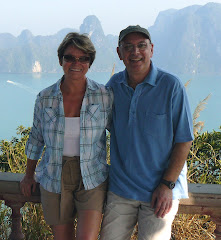
I am on a tour of London hospitals. Last Thursday (July 10), it was the Wellington, overlooking Lords Cricket Ground. It was a lovely sunny day, England were playing South Africa outside my window, and I was having a liver biopsy. No need to tell me how to have fun.
Actually, it was OK. The biopsy was virtually painless and only took about half an hour. They numb you with local anaesthetic, then stick a needle inside you. There’s a sharp thump as they snip bits off your liver. But you have to lie flat for five hours afterwards in case you bleed internally. Luckily, I was entertained by the cricket on the telly and by a Hungarian male nurse called Czaba, who was a dead ringer for the camp Austrian fashionista played by Sacha Baron Cohen, when he’s not being Borat. “Cricket, omygod cricket, don’t talk to me about cricket,” he lisped in an Austrian-sounding accent. “When I was au pair with this English family, they said hit the ball and then run, and I said run where, where do I run, omygod.”
The reason for the biopsy was to establish whether the lesions on my liver were offshoots of the mass on my pancreas. No-one ever uses the word cancer. They say mass, or tumour, or lesion, or suspicious cyst. But we all know it’s cancer – might as well say it.
The results were sent to Prof David Cunningham at the Royal Marsden in Chelsea. But don’t imagine this happens automatically. If you’re a cancer patient, you have to organise this yourself, chivvying away at doctors’ secretaries, finding phone numbers, checking appointment times, and in one case actually driving to the London Clinic to pick up the cd of my CT scan. It’s quite exhausting this dying business.
I never really wanted to go the Marsden on the basis that the tube journey alone would probably kill me. But I was assured that Prof Cunningham was the best in the business and that the Marsden was running a unique drugs trial for pancreatic, er, disease.
This is true – but unfortunately the experience at the Marsden was the first one I’ve had since the diagnosis which I would have to describe as harrowing. I’m now going to cut and paste the letter I’m going to send Prof Cunningham when he returns from holiday:
“Dear Prof Cunningham,
I am writing to you, constructively I hope, about communicating bad news to new patients.
In the past few weeks I have visited many hospitals and spoken to many doctors, but my meeting with you this week was by far the most dispiriting.
Let me explain it from the patient’s point of view.
My wife and I are ushered 25 minutes late into a room where the chairs are arranged so we cannot sit together and provide physical support for each other. There are two women in the room, who do not acknowledge us or explain who they are. One is sitting on the bed, texting, or filling in forms or something.
You begin to take a medical history of facts that are already in the papers you have. Suddenly you get up, unexplained, and leave the room to take a call. You return and whisper something to one of the women.
You then do a cursory physical examination without saying why.
Then a man in a suit comes into the room, unexplained, sits down, answers his phone and sends a text. He asks a question which has already been answered and you are a bit sharp with him.
Gradually, we get to the point of all this coming and going and texting and phoning. Someone in the room is about to die and it happens to be me. Perhaps I will be suitable for a clinical trial. Perhaps BUPA will help fund my participation. There are other options but all will lead to my imminent death.
Someone called Janine is then summonsed and my now shell-shocked wife and I are escorted to a windowless room which has two chairs for three people. Janine begins her explanation of my options sitting on the floor.
Later, my wife and I sit together on a sofa in the corridor. My wife is sobbing that “they’re awful – they have no respect.”
Now, I understand that you’re an eminent scientist dedicated to finding ways of prolonging life. I understand you’re extremely busy and pulled in many directions. And I understand that you and your team cannot become attached to patients who may all be dead soon. And, frankly, I’m a resilient soul who can withstand a bit of emotional negligence. But my wife was in pieces. You could do better.”
So, as of today (July 18), here’s where I am. I am talking to the Royal Marsden about joining their clinical trial. This would involve taking an intravenous cocktail of four toxic drugs – two kinds of chemotherapy, two biologic. The drugs kill everything that grows in your body. There’s a good chance they would stop the cancers growing – but at an unknown cost.
The alternative is to let the cancers take their course and try to stay well as long as possible. I am still eating and sleeping well, still getting out and about, still finding things funny, still enjoying life. Should I trade quality time now for more time (of unknown quality) in the future?

